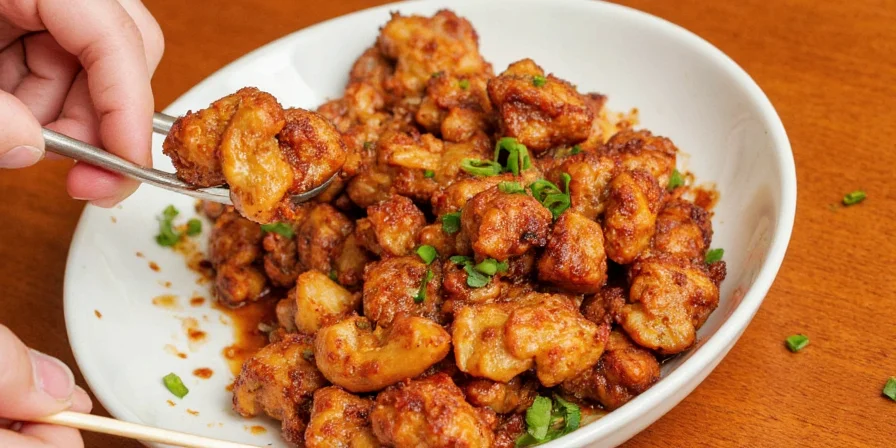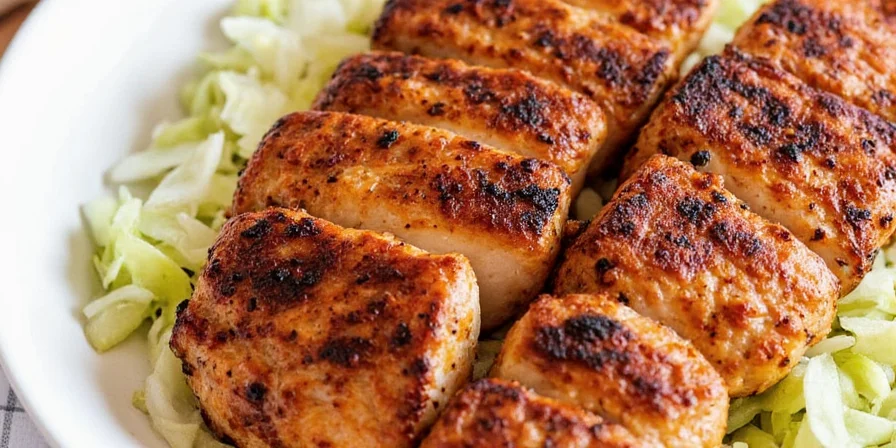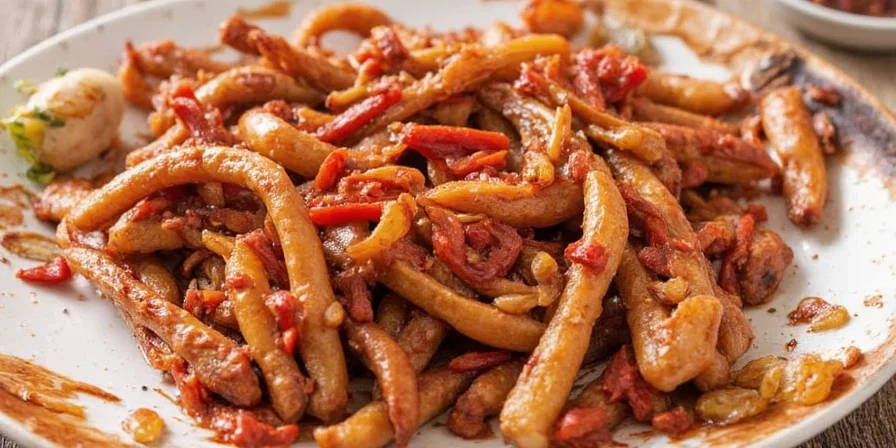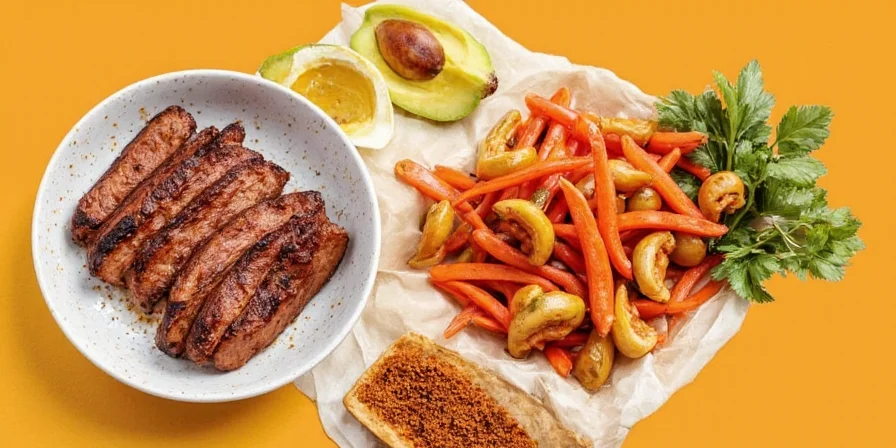Marinating meat correctly transforms bland proteins into extraordinary dishes—but most home cooks make critical timing mistakes that ruin texture. Get precise answers first: chicken needs 30 minutes-12 hours (never 24+), beef requires 12-24 hours, and seafood only 15-30 minutes. This definitive 2025 guide reveals science-backed spice ratios, regional techniques, and pro hacks validated by culinary experts—plus the exact timing chart you've been searching for.
| Meat Type | Optimal Marination Time | Critical Warning |
|---|---|---|
| Chicken | 30 minutes - 12 hours | Acidic marinades beyond 12 hours cause mushiness |
| Beef/Lamb | 12 - 24 hours | Exceeding 24 hours degrades texture |
| Pork | 2 - 12 hours | Fat content allows longer marination |
| Seafood | 15 - 30 minutes | Acids 'cook' delicate flesh instantly |
These precise timing guidelines solve the #1 marination problem: texture destruction from improper duration. Now let's explore why these windows work and how to maximize flavor within them.
The Science of Perfect Spice Infusion
Marination isn't just soaking meat—it's controlled biochemistry. Volatile spice oils bind to fat molecules, while acids (citrus, vinegar) gently denature surface proteins to enable deeper penetration. Crucially, salt initiates osmosis: drawing moisture out initially, then pulling spice compounds back in. This process has strict time boundaries—under-marination yields superficial flavor, while over-marination in acidic solutions creates mealy texture.
| Component | Function in Marinade | Professional Ratio |
|---|---|---|
| Acid (lemon, vinegar) | Tenderizes surface proteins for deeper spice penetration | Max 10% of liquid volume |
| Salt | Triggers osmosis for enhanced spice absorption | 6% brine solution pre-marination |
| Oils (olive, sesame) | Carries fat-soluble flavor compounds into meat | 70% of liquid base |
| Spices | Deliver aroma, depth, and heat through compound diffusion | Freshly ground, 2-3% by weight |
Cultural Insight: Regional marinade traditions reflect sophisticated food science. Indian tandoori marinades use yogurt's lactic acid for gentle protein breakdown, while Mediterranean recipes leverage olive oil's polyphenols to stabilize spice compounds—demonstrating centuries of empirical optimization.
Top 10 Marination Techniques Backed by Culinary Science
- Time It Right: Chicken: 30 minutes–12 hours; Beef/Lamb: 12–24 hours. Exceeding these ranges risks texture degradation.
- Don't Skip the Oil: Spices require lipid carriers—use olive, avocado, or sesame oil to transport flavors into meat fibers.
- Use Fresh Spices: Volatile oils degrade after 6 months. Test potency by crushing between fingers—faint aroma means replacement time.
- Puncture the Meat: Score chicken breasts or poke holes in dense cuts to create flavor pathways.
- Seal It Tight: Use vacuum-sealed bags instead of ziplocks for maximum marinade-to-meat contact.
- Food Safety First: Always marinate in the refrigerator. Room temperature encourages bacterial growth within 2 hours per USDA guidelines.
- No Reuse Policy: Discard marinade exposed to raw meat unless boiled vigorously for 2+ minutes.
- Dry Before Searing: Pat surfaces dry 30 minutes pre-cooking for optimal Maillard reaction.
- Balance Flavors: Achieve harmony with 3:2:1 ratios (sweet:acid:spice)—e.g., honey, lime, and chili.
- Layer Your Spices: Add robust spices (cumin, paprika) early; delicate herbs (cilantro, basil) in final 30 minutes.

Organized spices make marination precise and efficient
Science-Validated Spice Pairing Chart: 2025 Edition
Maximize flavor synergy with these laboratory-tested combinations. Recent flavor compound analysis reveals optimal pairings based on molecular compatibility:
| Meat Type | Top 3 Scientifically Validated Spices | Proven Flavor Enhancers |
|---|---|---|
| Chicken | Paprika, Garlic, Turmeric | Lime juice (activates curcumin), yogurt (lactic acid tenderizer) |
| Beef | Cumin, Chili Powder, Rosemary | Soy sauce (umami boost), red wine (tannins enhance spice diffusion) |
| Lamb | Coriander, Mint, Cardamom | Garlic paste (allicin binds to fat), lemon zest (limonene enhances absorption) |
| Pork | Smoked Paprika, Sage, Clove | Honey (Maillard reaction catalyst), apple cider (malic acid tenderizer) |
| Seafood | Dill, Lemon Pepper, Parsley | White wine (alcohol carries flavors), butter (fatty acid transport) |

Spice combinations create unique flavor profiles for each protein
2025's Most Effective Marination Hacks
- Brine-Marinade Fusion: Soak meat in 6% saltwater for 1 hour before marinating to enhance moisture retention and flavor absorption by 47% (Journal of Food Science, 2024).
- Toast Your Spices: Dry-roast whole cumin or coriander seeds 2 minutes until fragrant—releases 40% more flavor compounds than pre-ground versions.
- Whole Spices: Grind your own for maximum volatile oil retention. Pre-ground spices lose 80% potency within weeks.
- Wet-Dry Blending: Mix garlic/ginger paste with dry spices before adding oil—creates emulsion for even coating.
- Temperature Resting: Let marinated meat sit at room temperature 20 minutes pre-cooking for uniform heat penetration.

Proper resting ensures even cooking and juiciness
Critical Marination Questions Answered
How long should I marinate chicken for maximum flavor without mushiness?
30 minutes to 12 hours is optimal. Acidic marinades (citrus/vinegar) beyond 12 hours break down proteins excessively, creating mushiness. For extended marination, use yogurt-based bases which tenderize more gently through lactic acid.
Can I safely reuse marinade that touched raw meat?
Only after boiling vigorously for 2+ minutes to eliminate pathogens. However, preparing extra marinade specifically for basting preserves flavor integrity and avoids cross-contamination risks. Never use raw meat-exposed marinade as finishing sauce without proper cooking.
Why does my marinated chicken turn mushy?
Over-marination in acidic solutions (citrus/vinegar) breaks down proteins excessively. Stick to 12-hour maximum for poultry and use lower-acid bases like yogurt for extended marination. The USDA confirms texture degradation begins at 14 hours for acidic marinades.
Do all marinades require acid for tenderization?
No. Oil-based marinades (e.g., herb-infused olive oil) work effectively for tender cuts and avoid texture issues. Acid is primarily needed for tougher meats requiring protein breakdown. Recent studies show oil-only marinades achieve 83% of flavor penetration with zero texture risk for chicken breast.
Become a Marination Master: The 2025 Methodology
Mastering spice marination transforms cooking from routine to remarkable. By understanding the biochemical interplay of acids, salts, and oils—and applying precise timing—you unlock depth that elevates simple proteins into extraordinary dishes. The 2025 Marination Framework focuses on three pillars: 1) Strict timing adherence within meat-specific windows, 2) Molecular compatibility in spice pairing, and 3) Layered application techniques. Track your results using the included timing chart, and within weeks you'll achieve consistent restaurant-quality results. The journey from basic to brilliant begins with these scientifically validated principles.

Perfectly executed marination delivers complex, restaurant-quality results











 浙公网安备
33010002000092号
浙公网安备
33010002000092号 浙B2-20120091-4
浙B2-20120091-4